Some call him a ghoulish “adventurer”, others the “wrong man for the job”. Both and a great deal more may be true. Gholamreza Ziaei was named in the UK parliament on Wednesday as a key accomplice to state-sanctioned hostage-taking in Iran. MPs and campaigners want him and others to be subject to Magnitsky sanctions in a bid to hold them accountable for documented human rights violations.
Who is Gholamreza Ziaei? First and foremost, he is the former director of both Evin and Rajaei Shahr prisons. Most hostages as well as prisoners of conscience pass through the gates of Evin, which Ziaei oversaw from July 2019 to June 2020, at one time or another, and are often held in solitary confinement while cases are built against them for diplomatic leverage over foreign states.
Inside Iran Ziaei is best known for brutally beating detainees, and for his foul mouth. Many current and former inmates, including human rights activist Narges Mohammadi, have told of how Ziaei personally beat them up.
From the early 2000s Ziaei served as warden of various parts of Evin Prison, including Ward 8. He himself would later tell inmates there that in 2009, he had also been the director of Kahrizak Detention Center. In the aftermath of that year’s disputed presidential election, more than 120 detainees, mostly pro-democracy protesters, were tortured, in some cases to death. The admission came even though in 2011, when the Kahrizak bloodbath went to trial, court documents indicated that at the time the detention center was run by the police under the command of one Colonel Faraj Komeijani.
Whether or not Ziaei was at Kahrizak, he is a subscriber to meting out immense cruelty to political detainees. Former student activist Majid Tavakoli, who was held on Ward 8 after being arrested in May 2007, has described how he and a number of other prisoners were personally assaulted by Ziaei. So badly injured was Tavakoli that he was left bedbound for a week. “Ziaei loved prison adventures,” he writes. “His most beloved memories were those of apprehending absentee prisoners [those who did not return to prison after their furlough had ended], how he entered their homes, how he caught them by surprise, how he had beaten them.”
Some of these stories – and perhaps also the claim that he had been the commander of Kahrizak Detention Center – might well have been flights of fancy by Ziaei, told in a bid to terrorize the prisoners or give himself a more formidable reputation. If so, over time, they appear to have worked.
Ziaei was made the head of Rajaei Shahr Prison, also known as Gohardasht Prison and located north of Karaj, in October 2017. There have been numerous reports of his having beaten prisoners there too – even in passing, as he was walking down the corridors – and of refusing to let sick inmates go to hospital for treatment.
Then in July 2019, Ziaei was appointed director of Evin Prison. His first move at the helm of Iran’s most notorious jail was to ban political prisoners from receiving books. He reduced in-person visits from once a month to once every two months, imposed new, punishing search procedures on visiting family members, stopped telephone calls for many prisoners and blocked mothers held in Evin from seeing their children.
Upstart New Prison Head: “You are Not Humans”
The journalist Masoud Kazemi, who was jailed in May 2019 and later fled to Turkey while on leave during Covid-19, encountered Gholamreza Ziaei a few times during his detention at Evin. He told IranWire that one day after his appointment, Ziaei paid an in-person visit to Ward 4, where prisoners of conscience and some high-level financial criminals are held.
According to Kazemi, a number of prisoners were exercising in their communal room when the new chief warden arrived. Some of the financial convicts approached Ziaei, but others carried on exercising, which infuriated him. “You are not humans,” he told them. “You must be animals, to not get up when somebody comes in for inspections.”
On another occasion, Kazemi told IranWire, he came across Ziaei on the ward and tried to speak to him about the ban on books. In response, Ziaei made fun of his thinning hair: “This head of yours can’t even keep hold of some hair. It shows there’s no brain in it.”
In a letter to then-Chief Justice Ebrahim Raisi around two months after Ziaei’s appointment, another political prisoner, Farhad Meysami called Ziaei “the wrong man” for the job. The doctor and civil rights activist held that it was enough to meet Ziaei just once to conclude he was “absolutely unfit” for the office bestowed on him.
Zero Tolerance for “Monkey Business”
In protest against the new restrictions placed on political prisoners, both Meysami and his fellow inmate Mohammad Habibi, a human rights activist and board member of the Teachers' Union of Iran, stopped complying with prison regulations including attending roll calls and compulsory morning prayers.
As a result, first they were denied family visits outright, then removed from Evin. Fahad Meysami was transferred to Rajaei Shahr Prison and Mohammad Habibi was sent to Greater Tehran Penitentiary.
In February 2020, the human rights lawyer Amirsalar Davoudi went on hunger strike in Evin in protest against the authorities’ refusal to grant him leave. Prison officials quoted Ziaei as having told him: “You won’t get anything out of this kind of monkey business while I’m around.”
Many other prisoners of conscience saw their visitation rights stopped without notice. The first step in the lengthy process for approval is to fill out a form, which Ziaei prevented them from doing.
In January 2020, a flurry of reports were published about the grim conditions being endured by LGBT+ prisoners in Evin, most of whom were held in cramped, inhumane conditions on Ward 240. Seemingly in response and with Ziaei’s oversight, gay and trans detainees were then moved to a basement where convicts were never meant to be permanently housed. They now have no yard for fresh air, and no store to buy food from.
The zero-tolerance approach to dissent behind bars was exemplified the previous November, when veteran activist Narges Mohammadi and five others staged a sit-in at Evin in solidarity with the November 2019 protests. In Mohammadi’s telling, as a sadistic punishment, guards tricked her into thinking she had an appointment with her lawyer – and took her to Ziaei’s office instead.
"When I said I wouldn’t be left alone with him,” Mohammadi told a Clubhouse chatroom months later, “the prison head attacked me from behind. His assault and insults became more violent, I resisted, and they pushed at me and dragged me out.
“They wanted to force me into a car, so I sat on the ground. The prison director picked me up and dragged me towards to the car. My head was in the car and my lower torso was outside; he brazenly grabbed my waist, pushed me inside and sat on my leg, while another officer grabbed my arms and legs and threw me into the car like a sheep while I wasn’t wearing a hijab. All the while, I was shouting and protesting."
Following the assault on Mohammadi a group of detained activists at Evin issued a joint statement condemning violence against political prisoners. They also demanded an end to the stewardship of Gaolmates Ziaei.
Masoud Kazemi has told IranWire that after this show of solidarity, Ziaei’s deputy met with some of the protesting inmates. He reportedly wanted to know why they had issued a statement about this issue, but “not about the assassination of Ghasem Soleimani”.
A Grim Legacy
On June 21, 2020, Ziaei either left or was removed from post, for as-yet unknown reasons. He was replaced by Hamid Mohammadi, the former head of Ghezel Hesar Prison in Karaj and Adel Abad Prison in Shiraz.
The US Treasury sanctioned Ziaei in January 2018 in connection with “serious human rights abuses” at Rajaei Shahr Prison, before his tenure overseeing political prisoners and hostages at Evin even began. “Rajaei Shahr Prison has denied prisoners adequate medical care and access to legal representation,” the Department of Foreign Assets Control’s statement read. “Many Iranians who protested against their government are imprisoned at Rajaei Shahr, a facility where prisoners participating in hunger strikes are denied medical care; where there are reported incidents of sexual abuse and unlawful executions; and where at least one prisoner had his eye gouged out by officials.”
On April 12, 2021, the European Union also sanctioned Ziaei together with seven members of the Revolutionary Guards, Basij and police commanders for their role in the lethal crackdown on civilian protests in November 2019.
“Between July 2019 and June 2020,” the sanctions order stated, “Gholamreza Ziaei was the director of Evin Prison, where already harsh conditions for detainees further deteriorated during his tenure. Female prisoners were denied phone contact with their children. Political prisoners were denied weekly visits by relatives, which were only allowed every two months... From 2017 to 2019, before taking charge of Evin Prison in Tehran, Ziaei was the director of Rajaei Shahr Prison in Karaj, west of Tehran, where there have been numerous protests by political prisoners against abuse and inhumane living conditions.”
Related coverage:
Evin Prison CCTV Hack Reveals Torture and Medical Neglect
Narges Mohammadi Speaks on Clubhouse About Solitary Confinement, Sanctions and Torture
Four Decades of Prison, Torture and Executions: 100 Stories, the Same Storyline
Rich and Well-Connected Prisoners Enjoy Extended Furloughs in Their Luxury Villas
Voices From the Basement: Gay and Trans Detainees on Life in Evin Prison
Ex-Women Prisoners Speak Out About Sexual Abuse in Jail
Shocking Stories of Abuse, Harassment and Humiliation of Female Prisoners in Iran
A Prisoner’s Tales of Drugs and Prostitution Inside an Iranian Jail
Notes from Fashafuyeh: “The Prison Sentence That Could End in Death”
visit the accountability section
In this section of Iran Wire, you can contact the officials and launch your campaign for various problems





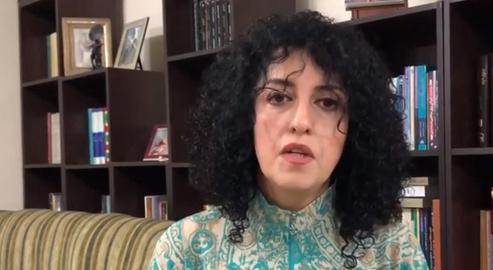
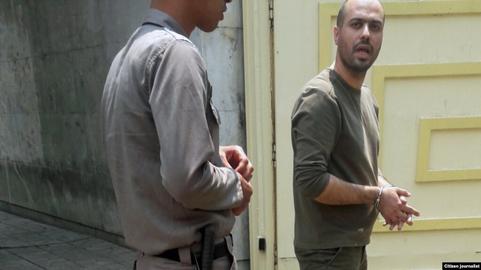
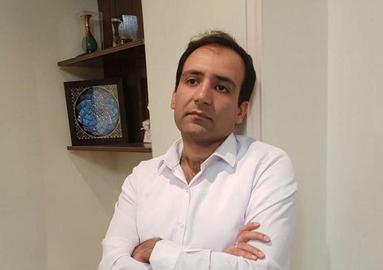



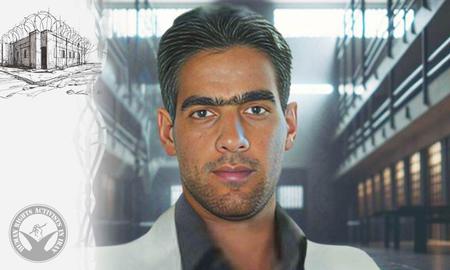


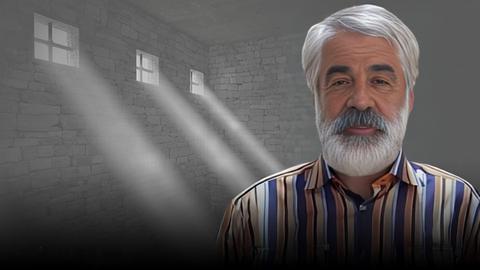

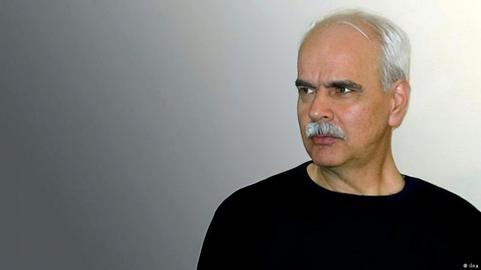
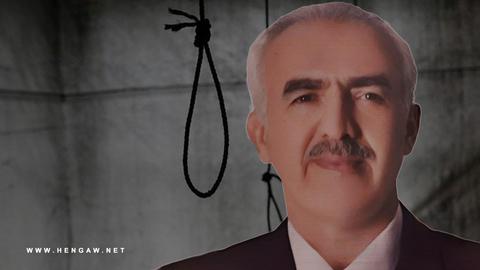
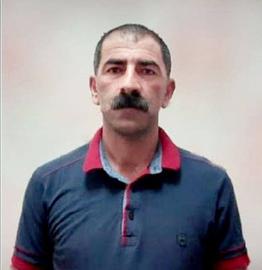



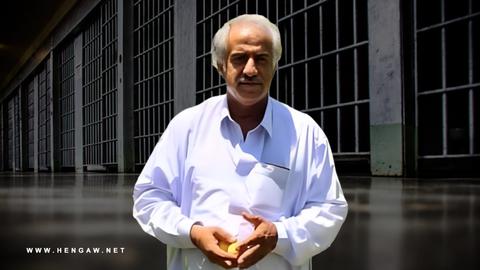


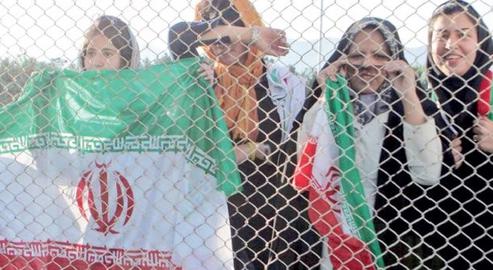
comments